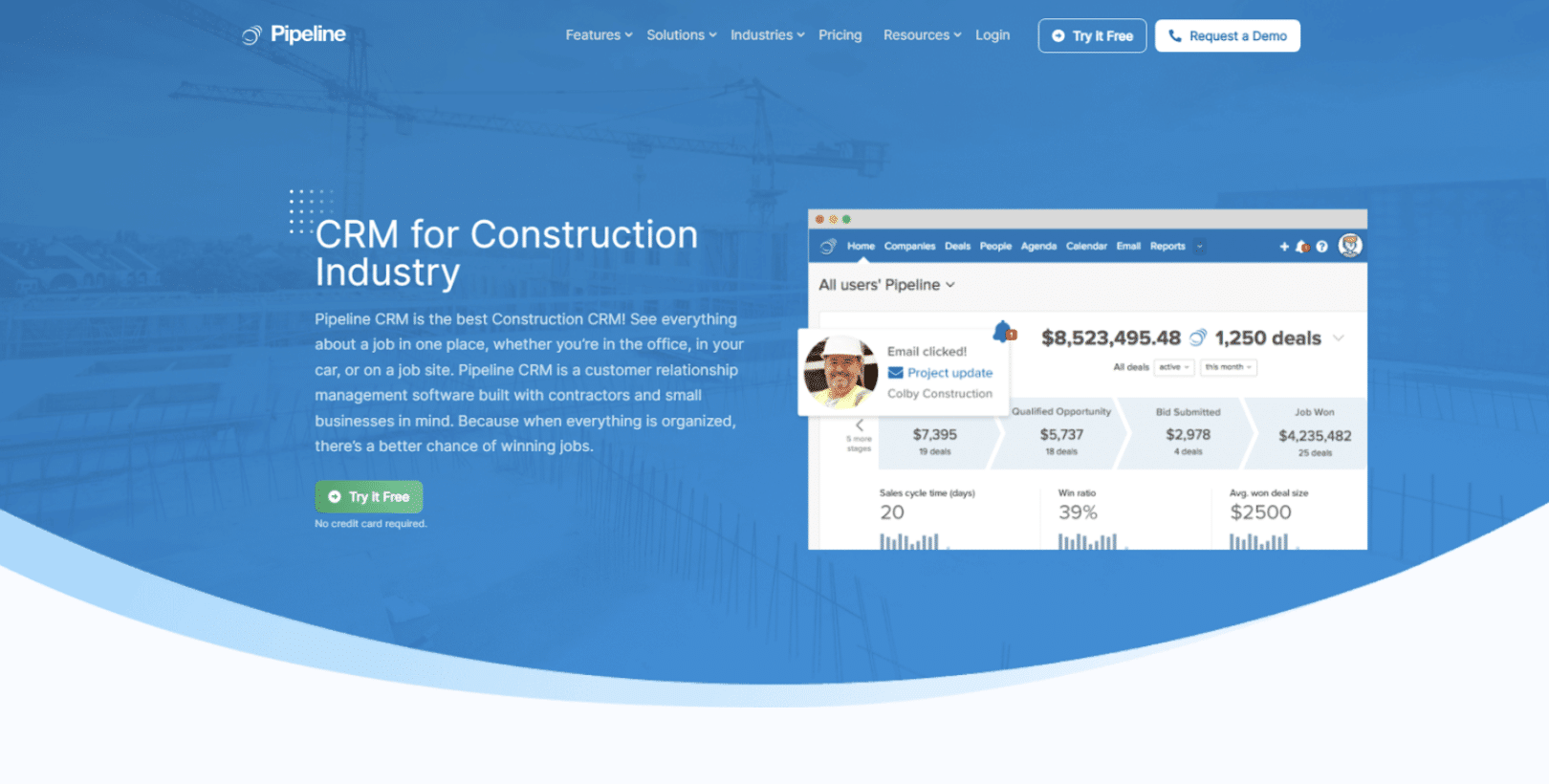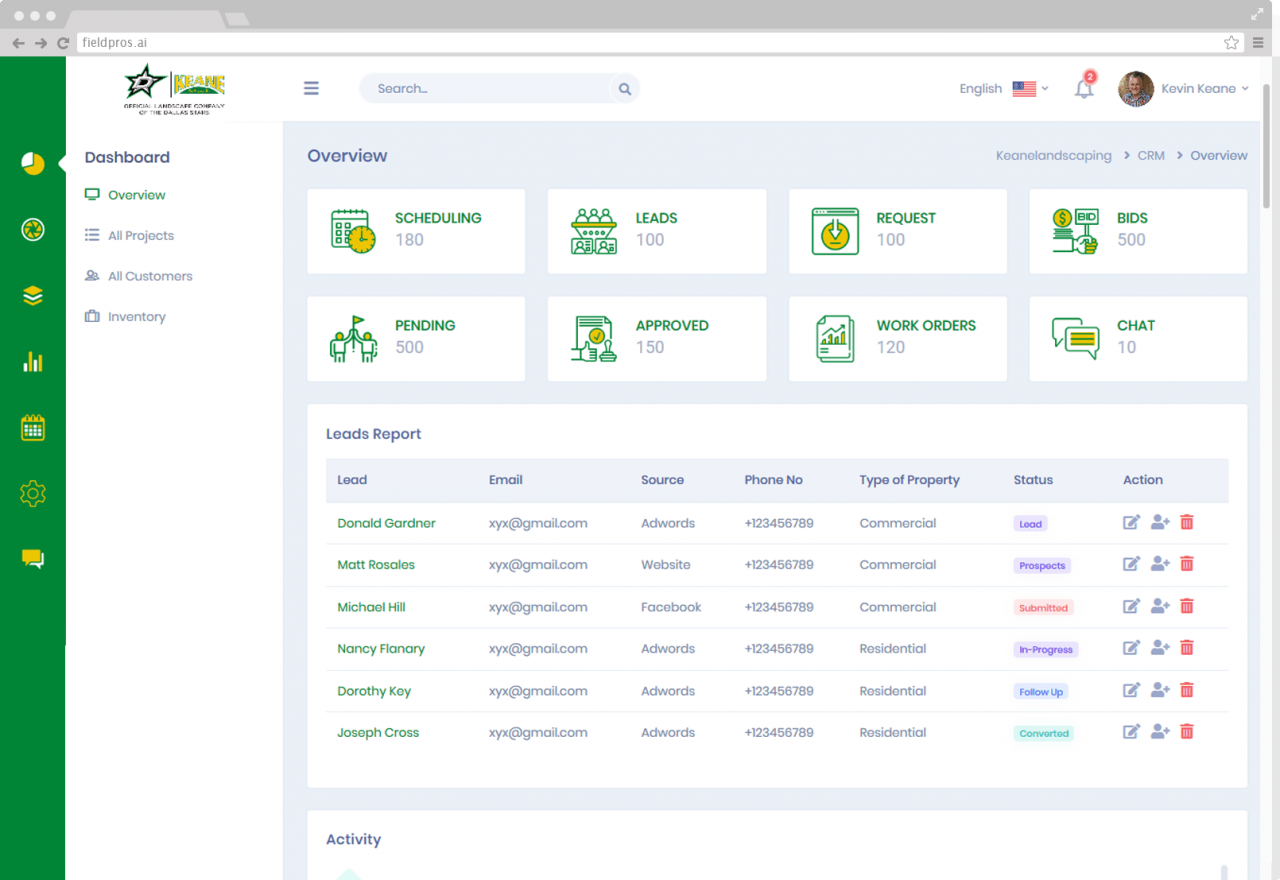CRM for construction is a powerful tool that can help construction companies overcome unique challenges and streamline their operations. With the right CRM system, construction companies can improve project management, enhance customer satisfaction, and gain a competitive edge.
This comprehensive guide will explore the benefits, features, and best practices of CRM for construction. We’ll also provide tips on selecting and implementing a CRM system that meets the specific needs of your construction business.
Construction Industry Landscape
The construction industry faces unique challenges in managing customer relationships due to its project-based nature, complex supply chains, and regulatory environment. Construction businesses often deal with multiple stakeholders, including clients, architects, engineers, subcontractors, and suppliers, making it crucial to maintain strong relationships throughout the project lifecycle.
Despite these challenges, the adoption of customer relationship management (CRM) systems in the construction sector is growing. According to a recent study by IndustryWeek, 70% of construction companies now use CRM systems to manage customer interactions and improve project outcomes.
Current State of CRM Adoption
- 70% of construction companies use CRM systems.
- CRM adoption is driven by the need to improve customer satisfaction, streamline communication, and enhance project visibility.
- Construction-specific CRM systems are designed to address the unique challenges of the industry, such as project tracking, document management, and subcontractor collaboration.
Benefits of CRM for Construction
Construction companies face unique challenges in managing projects, communicating with clients, and tracking customer interactions. A CRM system tailored specifically for the construction industry can address these challenges and provide numerous benefits.
CRM systems for construction offer a range of advantages, including improved project management, streamlined communication, and enhanced customer satisfaction.
Improved Project Management
A CRM system can help construction companies manage projects more efficiently by providing a central platform for storing and tracking project data. This includes information such as project timelines, budgets, contracts, and customer details. With a CRM system, project managers can easily monitor progress, identify potential delays, and make informed decisions to keep projects on track.
Streamlined Communication, Crm for construction
CRM systems facilitate seamless communication between construction companies and their clients. They provide a central repository for all customer interactions, including emails, phone calls, and site visits. This makes it easy for construction companies to track customer requests, respond promptly to inquiries, and build stronger relationships with their clients.
Enhanced Customer Satisfaction
CRM systems help construction companies improve customer satisfaction by providing a personalized experience. They allow companies to track customer preferences, record interactions, and offer tailored services. By understanding customer needs and providing timely support, construction companies can build stronger relationships and increase customer loyalty.
Features of Construction-Specific CRM: Crm For Construction
Construction-specific CRMs offer a range of features tailored to the unique requirements of the construction industry. These features go beyond the basic functionalities of general CRM solutions, providing specialized capabilities to effectively manage construction projects and enhance collaboration among stakeholders.
The key features that differentiate construction-specific CRMs from general CRM solutions include:
Project Tracking
Construction-specific CRMs offer robust project tracking capabilities that enable users to monitor the progress of multiple projects simultaneously. These features include:
- Project timelines and Gantt charts for visualizing project schedules
- Progress tracking tools to monitor milestones and identify potential delays
- Resource allocation and scheduling to optimize team utilization
Document Management
Construction projects involve a vast amount of documentation, including blueprints, contracts, and permits. Construction-specific CRMs provide centralized document management capabilities that:
- Store and organize project documents in a secure repository
- Enable version control to track changes and maintain document integrity
- Facilitate document sharing and collaboration among team members
Equipment Tracking
Construction companies often manage a large fleet of equipment. Construction-specific CRMs offer equipment tracking features that:
- Monitor the location and usage of equipment in real-time
- Schedule maintenance and repairs to minimize downtime
- Track equipment costs and utilization to optimize resource allocation
Selecting and Implementing a CRM

Selecting and implementing a CRM system for construction businesses requires careful consideration and a step-by-step approach. By following these steps and considering key factors, construction companies can choose and deploy a CRM that aligns with their specific needs and goals.
Step-by-Step Guide to Selecting and Implementing a CRM
- Assess Business Needs:Define the specific challenges and goals that a CRM system is expected to address, such as improving customer relationships, streamlining project management, or enhancing communication.
- Research and Evaluate Vendors:Identify potential CRM vendors that specialize in the construction industry. Evaluate their industry expertise, customization options, integration capabilities, and customer support.
- Request Demos and Trial Versions:Engage with vendors to request product demonstrations and trial versions to gain hands-on experience with their CRM systems. This allows for a better understanding of the user interface, functionality, and alignment with business requirements.
- Consider Customization and Integration:Determine the level of customization required to tailor the CRM to specific construction processes and workflows. Also, assess the system’s integration capabilities with other software used by the company, such as project management tools or accounting systems.
- Implement and Train:Once a CRM system is selected, it should be implemented in a phased approach to minimize disruption. Provide comprehensive training to all users to ensure adoption and effective utilization.
- Monitor and Evaluate:Regularly monitor the CRM system’s performance and user feedback to identify areas for improvement and ensure that it continues to meet the evolving needs of the construction business.
Factors to Consider When Choosing a Vendor
- Industry Expertise:Choose a vendor with a deep understanding of the construction industry’s unique challenges and processes.
- Customization Options:Ensure that the CRM system offers flexible customization options to adapt to the specific requirements of construction businesses.
- Integration Capabilities:Consider the CRM system’s ability to integrate with other software used by the construction company, such as project management tools, accounting systems, and customer support platforms.
- Customer Support:Evaluate the vendor’s customer support capabilities, including response times, technical expertise, and availability of dedicated account managers.
- Cost and Value:Determine the total cost of ownership, including software licensing fees, implementation costs, and ongoing maintenance expenses. Assess the value provided by the CRM system in relation to its cost.
Best Practices for Construction CRM

Optimizing CRM usage in construction companies involves adopting best practices that enhance data management, automate processes, and leverage analytics for informed decision-making.
Data Management
- Establish clear data collection and storage protocols to ensure consistency and accuracy.
- Integrate CRM with other software systems (e.g., project management, accounting) for comprehensive data sharing.
- Regularly clean and update data to maintain its integrity and relevance.
Process Automation
- Automate repetitive tasks such as lead generation, scheduling appointments, and sending follow-up emails.
- Implement workflows to streamline processes and improve efficiency.
- Use mobile CRM applications to access data and manage tasks on the go.
Leveraging Analytics
- Track key performance indicators (KPIs) related to sales, marketing, and customer service.
- Use dashboards and reporting tools to visualize and analyze data for insights.
- Identify trends and patterns to optimize strategies and make informed decisions.
Case Studies and Success Stories
Numerous construction companies have experienced remarkable success after implementing CRM systems. These case studies demonstrate the tangible benefits that CRM can bring to the construction industry.
One notable example is a large-scale construction company that implemented a CRM system to streamline its operations. The system enabled them to centralize customer data, manage projects effectively, and improve communication with clients. As a result, they experienced a 15% increase in project completion rates and a significant reduction in project delays.
Benefits Achieved
- Improved project outcomes through better planning, coordination, and collaboration.
- Increased customer loyalty by providing personalized experiences and responsive support.
- Enhanced operational efficiency by automating tasks, reducing redundancies, and streamlining processes.
- Improved decision-making by providing real-time insights into project performance and customer behavior.
- Increased revenue generation by identifying and pursuing new business opportunities.
Wrap-Up
By implementing a CRM system tailored to the construction industry, companies can gain a significant advantage. From improved project management to enhanced customer satisfaction, CRM can help construction businesses achieve their goals and drive success.